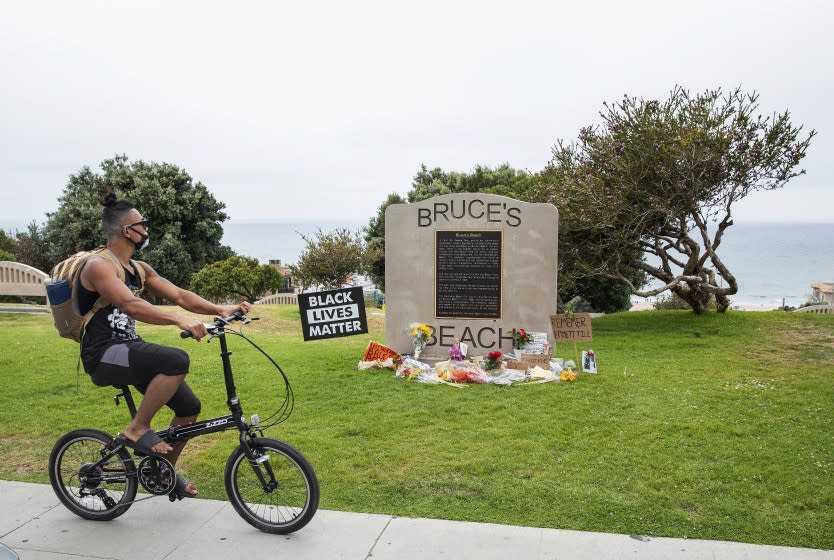Letters to the Editor: In Manhattan Beach, a lesson on the racism of generational wealth

To the editor: With the help of the GI Bill, my father bought our house in Manhattan Beach for $11,000. He chose to live there because he couldn't afford a home in Westchester, where he worked as a teacher. ("Manhattan Beach was once home to Black beachgoers, but the city ran them out. Now it faces a reckoning," Aug. 2)
As our family grew, he tapped into the value of the house to build an addition — and further increase his wealth. Later, he was able to help each of my siblings purchase their own homes.
After our parents died, my siblings and I sold the house in 2008 for nearly $1 million. Among the six of us, we used our shares to pay off home loans, pay down our children's college loans, provide down payments for our children's first homes and more.
This is the generational wealth my parents, who started with nothing but their educations, were able to effect — and which Black families have been systematically deprived of. It was only this summer with the Black Lives Matter protests that I learned the GI Bill was far less effective for Black veterans. In Manhattan Beach, they could not even buy a home.
In the Easy Reader News editorial cited in your article, former Manhattan Beach Mayor Russ Lesser estimates that the fair market value of the property that was taken from Charles and Willa Bruce in 1924 to be at least $75 million.
I write from Glendale, where I have been a resident for 36 years and which has its own shameful history of discrimination. There is much to come to terms with.
Anna Ganahl, Glendale
..
To the editor: Your article reminded me of the 1960s when my young family lived in our first home in Manhattan Beach. While my wife and I were liberal and considered racism intolerable, we were certainly aware there were no African Americans to be seen in Manhattan Beach.
I remember one political event we attended showcasing people running for the City Council, where one candidate proudly said that he had been active in keeping Blacks out of Manhattan Beach in the past and promised he would continue to do that if elected. We were both shocked and I stood up and objected.
Luckily we were not the only people who felt that way, and he went on to defeat.
Bob Berman, West Hills
..
To the editor: I was interested to read the article about Bruce's Beach in Manhattan Beach and how racism led to the loss of Black people's property through eminent domain. It also mentioned how Japanese American and Latino families were similarly deprived of their property.
This reminded me of how my family lost our property on Bunker Hill through eminent domain in the 1960s.
Bunker Hill was a low-income, majority-white neighborhood, albeit with a significant minority population, in close proximity to downtown. I can bear witness to the fact that it was not a slum.
Despite this, the neighborhood had been redlined, declared blighted and threatened with demolition for decades by a city bent on seizing it. When the time came, thousands of low-income white and minority residents, especially the elderly poor, were displaced.
Economic exploitation can be colorblind. You just have to be powerless, unwanted, unvalued and in possession of coveted property.
Gordon Pattison, Los Angeles

